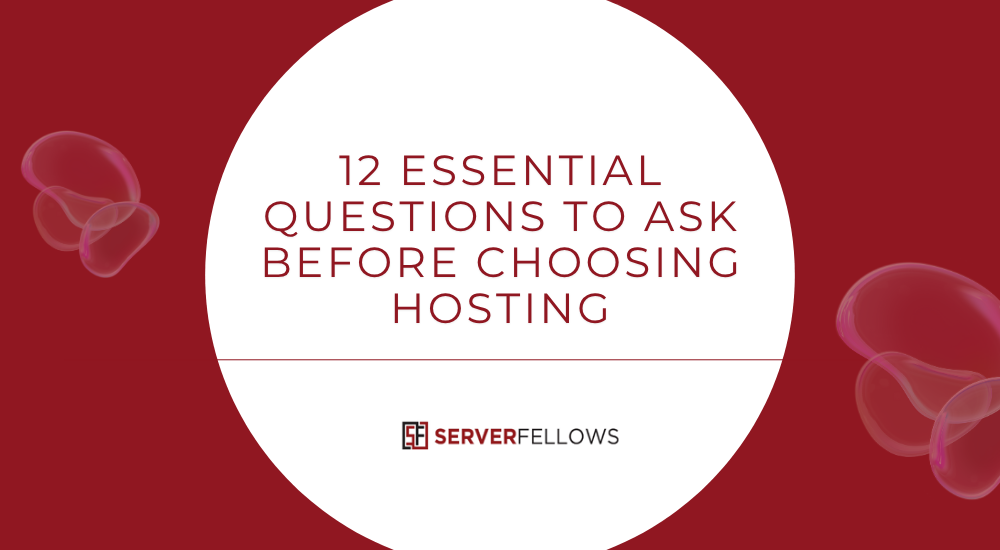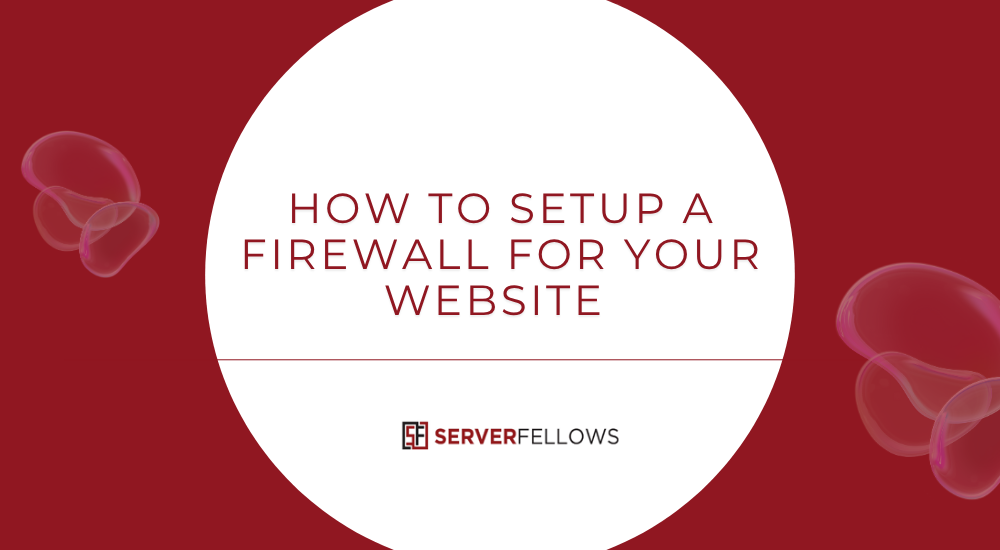
How to Choose Web Hosting: 12 Questions You Must Ask
Selecting the right web hosting is one of the most important decisions when building a website. Your hosting provider determines how fast your site loads, how secure it remains, and how well it performs during traffic surges. Yet, most people rush through this choice and regret it later.
In this detailed guide on how to choose web hosting, we’ll explore 12 crucial questions you should ask before signing up with any provider. These questions will help you find a reliable, scalable, and secure hosting service that supports your long-term goals.
1. What’s Your Uptime Guarantee?
A hosting provider’s uptime reflects how consistently your website stays online. Look for at least 99.9% uptime, which translates to less than 9 hours of downtime per year. Anything below that can lead to lost visitors, reduced sales, and poor SEO rankings.
A strong uptime guarantee also shows that the provider invests in redundant systems and infrastructure.
2. Where Are Your Servers Located?
Server location impacts website speed and search visibility. The closer your hosting servers are to your target audience, the faster your website loads for them.
When learning how to choose web hosting, always verify whether the host allows you to select from multiple data center locations. If your audience is global, consider providers with a content delivery network (CDN) to optimize performance across regions.
3. Do You Include Backups?
Backups protect you from accidents, hacks, and data loss. Some providers include daily automated backups—others make you pay extra. Choose a host that performs full-site backups (files + databases) and allows easy one-click restoration.
This ensures that even in worst-case scenarios, your website can be restored within minutes instead of days.
4. Is SSL Free?
An SSL certificate encrypts data exchanged between your website and visitors. It’s not optional anymore—it’s mandatory. Google even flags non-SSL sites as “Not Secure.”
Your hosting plan should include free SSL certificates (via Let’s Encrypt or equivalent). Never choose a provider that charges for SSL unless it offers advanced enterprise-level certificates.
5. What Support Do You Offer?
Reliable support is vital. Look for 24/7 customer support via live chat, email, and phone. A host with in-house technical experts can resolve issues faster than outsourced call centers.
Before committing, test their responsiveness—send a question and see how quickly and clearly they reply.
6. Are Plans Scalable?
Your website will grow. Your hosting should too. Choose a provider that allows easy scaling—from shared to VPS to dedicated or cloud hosting.
Ask if they support instant upgrades without downtime. This flexibility ensures you won’t have to migrate to a new host when your business expands.
7. What’s Included in Pricing?
Transparent pricing is a sign of a trustworthy host. Look beyond the advertised discount. Many companies lure users with a low first-year rate, then hike renewal prices.
Compare renewal rates, resource allocations (RAM, CPU, bandwidth), and whether essentials like SSL, backups, and email are included.
When understanding how to choose web hosting, always read the fine print before paying.
8. Do You Offer Migration Help?
If you’re switching from another provider, free migration support saves a lot of hassle. Many good hosts will move your files, databases, and email accounts for you.
Ask if the migration includes testing and DNS configuration. A seamless migration ensures zero downtime during the switch.
9. How Do You Handle Security?
Website security is non-negotiable. A reliable host should include:
- Firewalls and malware scans
- DDoS protection
- Regular patching and updates
- Two-factor authentication (2FA) for your dashboard
Security should be proactive, not reactive. The best providers monitor threats 24/7 and automatically isolate compromised accounts.
10. What’s the Control Panel Like?
A good control panel saves time and effort. Most popular ones include cPanel, Plesk, or custom dashboards designed for beginners.
It should allow you to manage domains, databases, backups, and emails with ease. A complicated interface can slow down simple tasks like adding subdomains or installing WordPress.
11. Do You Offer Email Hosting?
Professional email addresses (like yourname@yourdomain.com) build trust with customers. Some hosting companies include email hosting for free, while others charge extra or require third-party setups.
Make sure your hosting includes spam filters, autoresponders, and sufficient storage per mailbox.
12. Can I Host Multiple Sites?
If you manage multiple domains or projects, choose a provider that allows multi-site hosting under one account.
This saves money and simplifies management. Check if each site gets isolated resources—this prevents one website from affecting another during traffic spikes.
Additional Tips on How to Choose Web Hosting
Beyond the 12 questions above, here are a few bonus factors to consider when evaluating hosting providers:
1. Speed and Performance
Choose a host that uses SSD or NVMe storage and the latest server technologies like LiteSpeed or NGINX. Website speed directly affects SEO rankings and user engagement.
2. User Reviews and Reputation
Always check real user feedback on independent sites before committing. Look for consistency in uptime, support quality, and transparency in billing.
3. Money-Back Guarantee
A 30-day money-back guarantee gives you peace of mind. You can test their performance without long-term commitment.
4. Developer-Friendly Tools
If you’re a developer, check for access to SSH, Git, staging environments, and one-click installers for CMS platforms like WordPress or Joomla.
FAQs on Choosing Web Hosting
Do I need to ask all 12 questions?
Yes. Each question covers a critical area of reliability, scalability, or security. Skipping them could lead to hidden costs or technical limitations later.
Are all hosts transparent about their features?
Not always. Some providers highlight what sounds good while hiding essential limitations like storage caps or lack of support. Ask direct questions before paying.
Can small websites skip some features?
Not if you value long-term stability. Even small sites need secure backups, uptime reliability, and fast load times.
Does hosting location affect SEO?
Yes. Search engines prefer websites that load quickly for local visitors. Selecting servers closer to your audience can improve search visibility and user experience.
Conclusion: Choose Hosting That Scales With You
Learning how to choose web hosting is about asking the right questions and knowing what to look for.
Your ideal host should offer:
- Reliable uptime and speed
- Transparent pricing
- Free SSL and backups
- Scalable plans
- Excellent 24/7 support
A great host doesn’t just keep your site online—it helps your business grow securely and smoothly.
If you’re ready to make an informed choice, explore Serverfellows.com — a trusted hosting platform known for reliability, speed, and strong customer support. Get the answers you need, and host your website with confidence.
Asking the right questions avoids future headaches.
Get hosting answers that matter at Serverfellows.com — built for UAE businesses.


